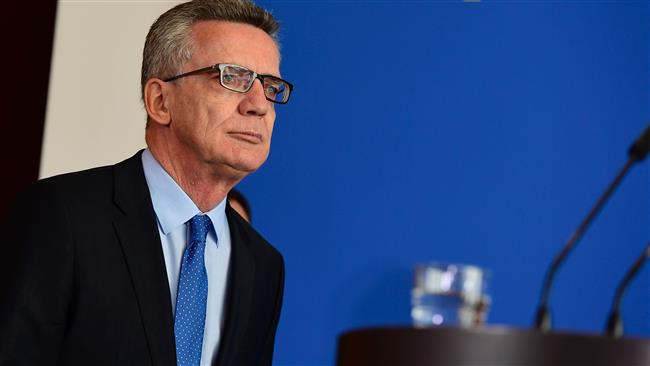German interior minister proposes partially banning burqa


German Interior Minister Thomas de Maiziere on Friday proposed partially banning the full-face burqa Islamic veil, one day after Austria’s foreign and integration minister called for a similar ban.
“We agree that we reject the burqa, we agree that we want to introduce a legal requirement to show one’s face in places where it is necessary for our society’s coexistence, at the wheel, at public offices, at the registry office, in schools and universities, in the civil service, in court,” the German minister told public television after a meeting with conservative regional interior ministers.
Burqa “does not belong in our cosmopolitan country,” he added.
“We want to show our faces to each other and that is why we agree that we reject this, the question is how we put this into law,” de Maiziere said.
The ban on the full-face hijab to be introduced by the German interior minister could exacerbate Islamophobic tendencies in Germany, where far-right extremist groups are already campaigning, sometimes violently, against Muslims and refugees.
On August 11, de Maiziere announced a series of security measures, including boosting the number of police forces in Germany, introducing video surveillance at transport hubs, and restrictions on obtaining dual nationality in Germany, following terrorist attacks in July claimed by the Daesh Takfiri terrorists and ahead of the country’s 2017 national elections.
The minister had already opposed a blanket ban on face-covering veil proposed by Germany’s ruling Christian Democrats (CDU) party, which is led by Chancellor Angela Merkel. The government’s open-door policy had been blamed for the attacks in Germany.
De Maiziere also expected that the partial ban would be “likely to win approval” in parliament.
As an instance, the German interior minister has in his proposal called for doctors to inform authorities if they become suspicious that a patient is planning to harm other people.
Doctors who breach patient confidentiality in Germany can face up to a year in prison or be forced to pay a fine.
The proposal has faced criticism already.
Frank Ulrich Montgomery, the head of the German Medical Association, argues that “patient confidentiality protects patients’ privacy and is a basic right under the constitution,” and that the “tense domestic security situation must not tempt us into rash political and legal measures.”
On Thursday, Austrian Foreign and Integration Minister Sebastian Kurz said religious symbols such as the burqa, or full body veils, were issues that needed to be discussed.
“A full body veil is hindering integration,” Kurz said, claiming that the burqa was “not a religious symbol but a symbol for a counter-society.”




